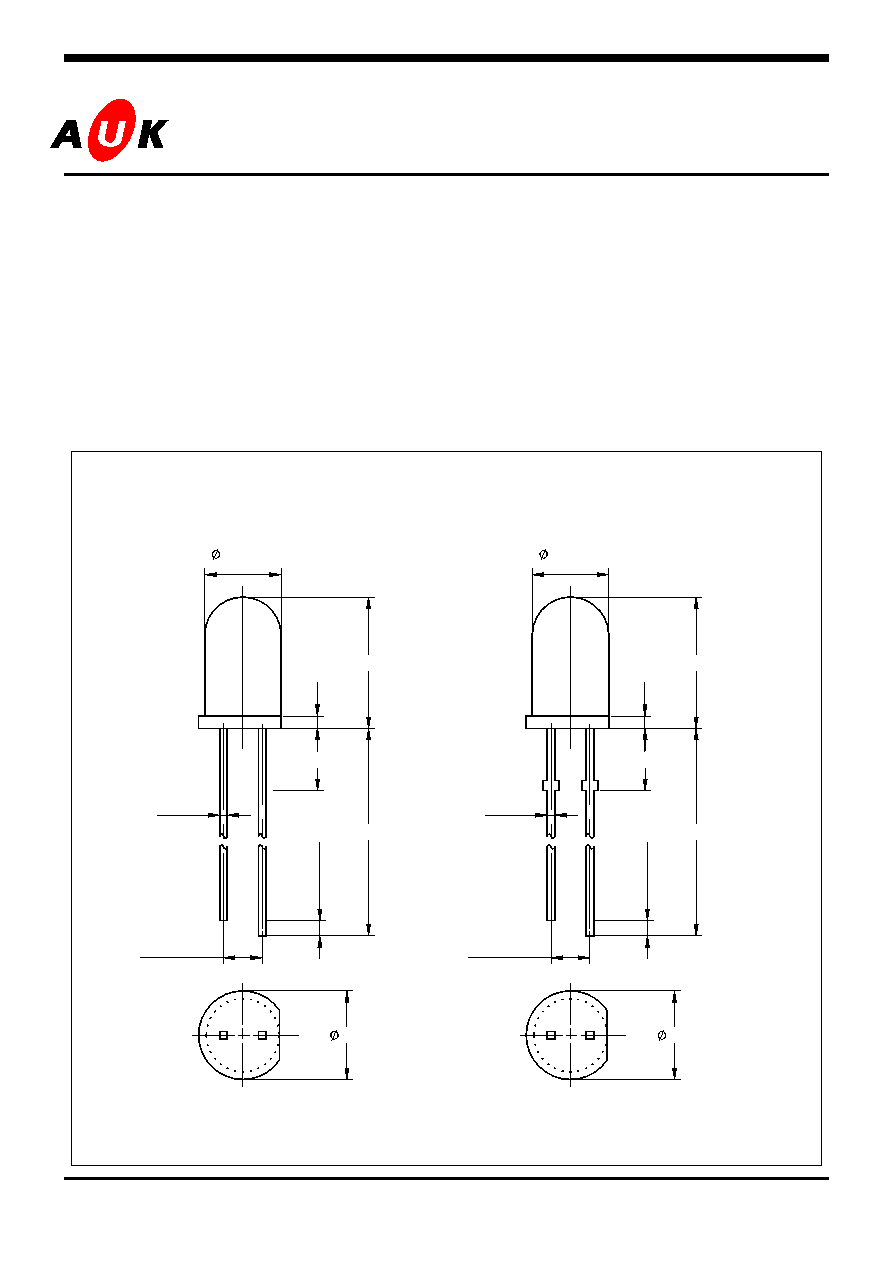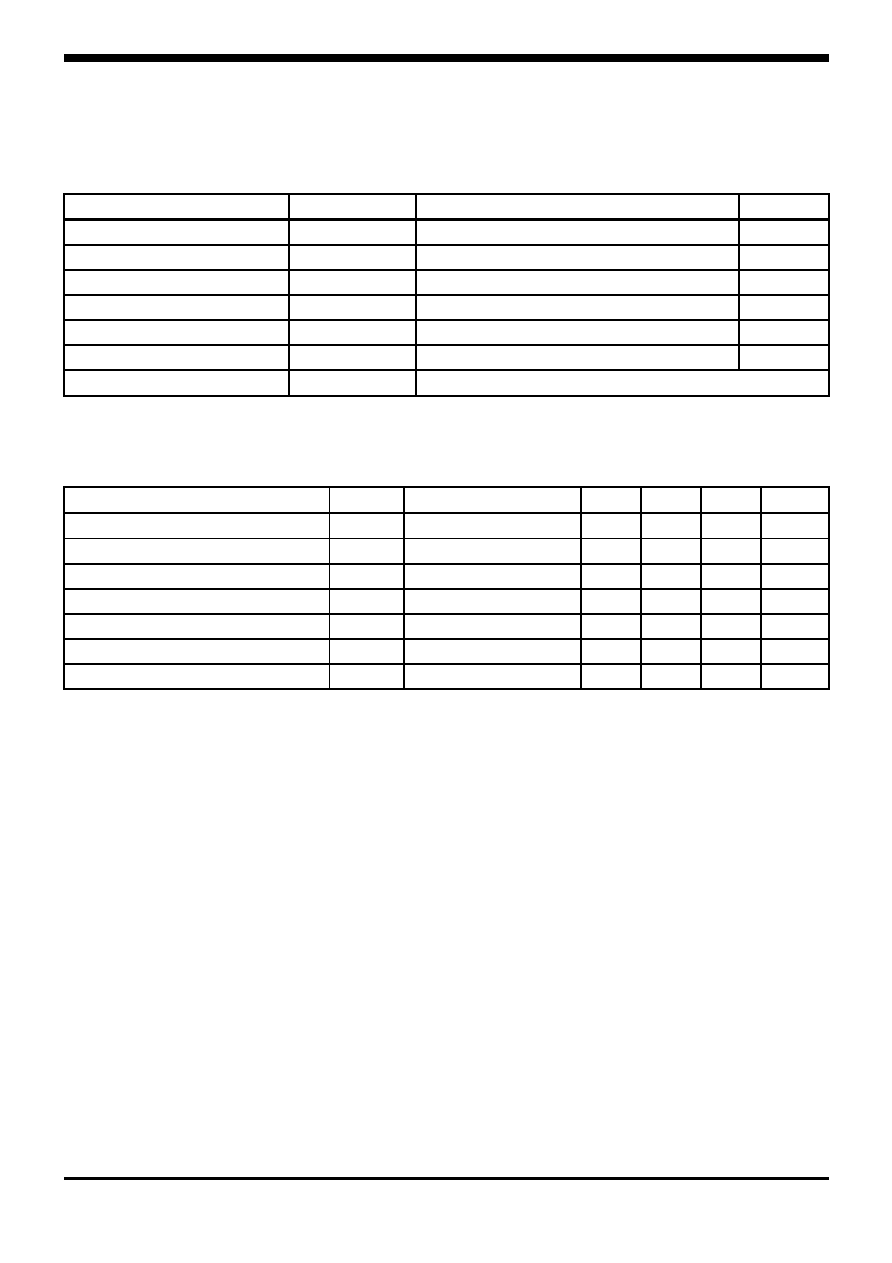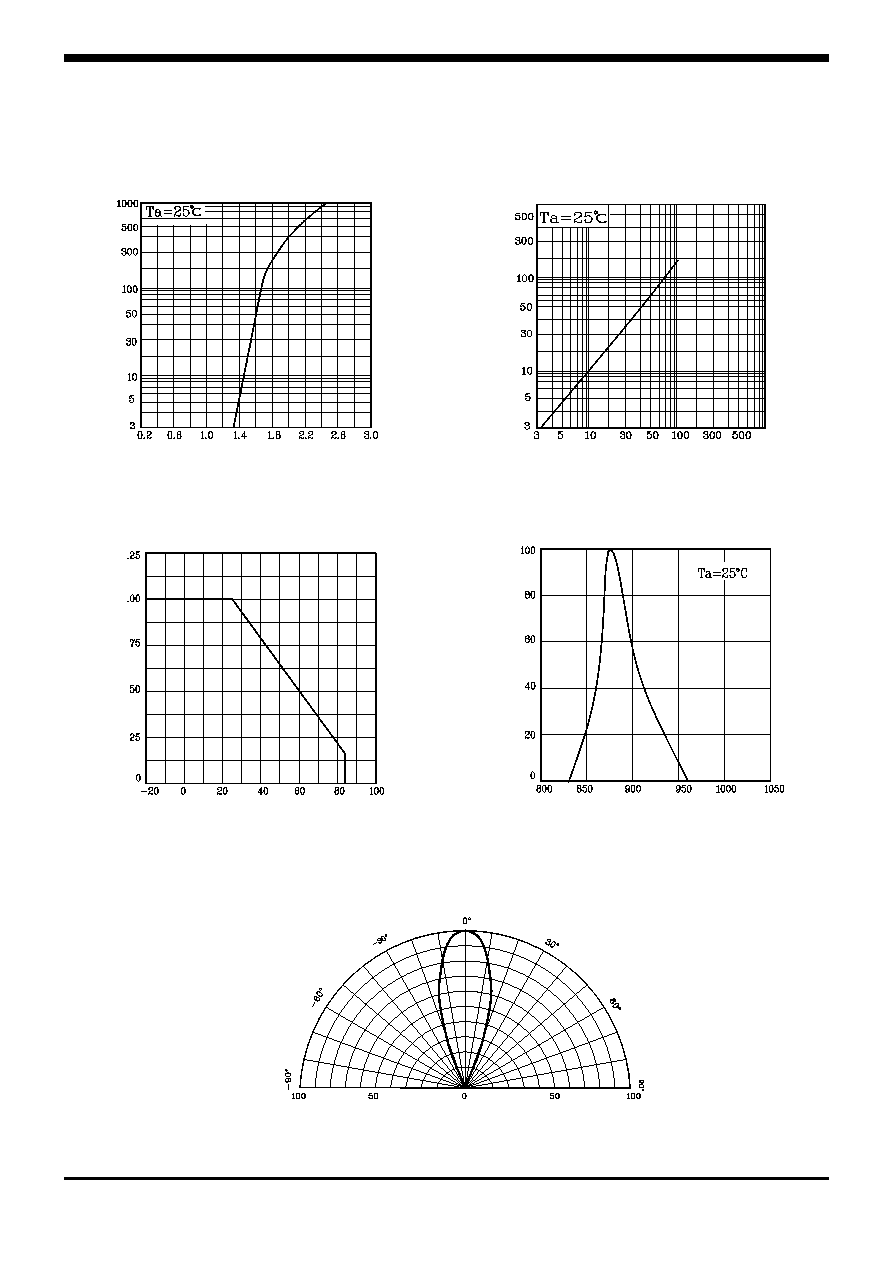
KLI-0005-000
1
SI5315-DS/SI5315-DS(B)
High Speed IRED
Features
· Colorless transparency lens type
· 5mm
(T-13/4)
all plastic mold type
· Low power consumption
· High power, High speed type
Applications
· Infrared remote control and free air transmission systems with low forward voltage and
comfortable radiation angle requirements in combination with PIN photodiodes or phototransistors.
Outline Dimensions unit :
mm
S
S
e
e
m
m
i
i
c
c
o
o
n
n
d
d
u
u
c
c
t
t
o
o
r
r
STRAIGHT TYPE STOPPER TYPE
23.0 MIN
2.54NOM
1
2
5.8
0.5
3.4±
0.2
0.8±
0.2
5.0±
0.2
8.6±
0.2
1
.
0
M
I
N
1
.
0
M
I
N
23.0 MIN
2.54NOM
1
2
5.8
0.5
8.6±
0.2
3.4±
0.2
0.8±
0.2
5.0±
0.2
PIN Connections
1. Cathode
2. Anode

KLI-0005-000
2
SI5315-DS/SI5315-DS(B)
Absolute maximum ratings
Characteristic Symbol
Ratings
Unit
Power Dissipation
P
D
150
mW
Forward Current
I
F
100
mA
*
1
Peak Forward Current
I
FP
1
A
Reverse Voltage
V
R
4
V
Operating Temperature
T
opr
-2585
Storage Temperature
T
stg
-30100
*
2
Soldering Temperature
T
sol
260 for 5 seconds
*1.Duty ratio = 1/16, Pulse width = 0.1ms
*2.Keep the distance more than 2.0mm from PCB to the bottom of IRED package
Electrical Characteristics
Characteristic Symbol
Test
Condition Min.
Typ.
Max.
Unit
Forward Voltage
V
F
I
F
= 50mA
-
1.5
2.0
V
Radiant Intensity
I
E
I
F
= 50mA
30
70
-
mW/Sr
Peak Wavelength
P
I
F
= 50mA
-
875
-
nm
Spectrum Bandwidth
I
F
= 50mA
-
45
-
nm
Rise Time
t
r
I
F
= 50mA
-
15
-
ns
Reverse Current
I
R
V
R
=4V -
-
10
uA
*
3
Half angle
1
/
2
I
F
= 50mA
-
±20
- deg
*3.
1/2
is the off-axis angle where the luminous intensity is 1/2 the peak intensity


